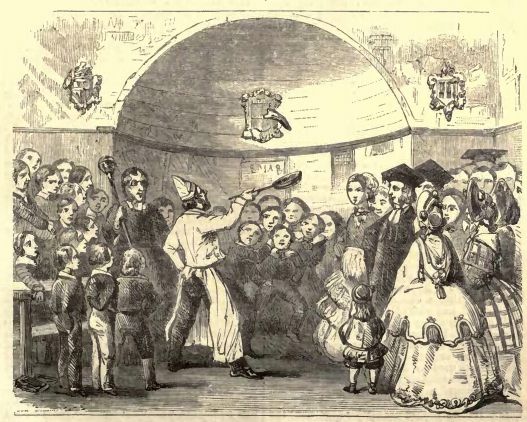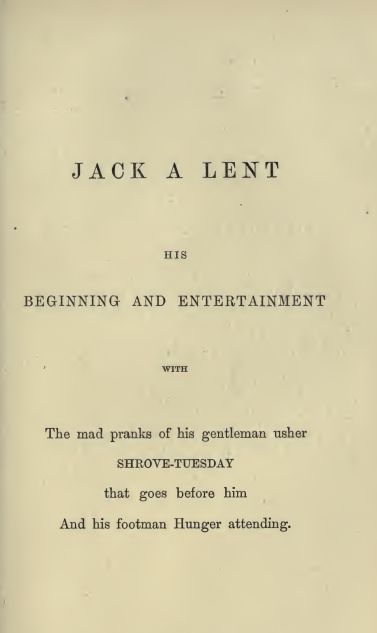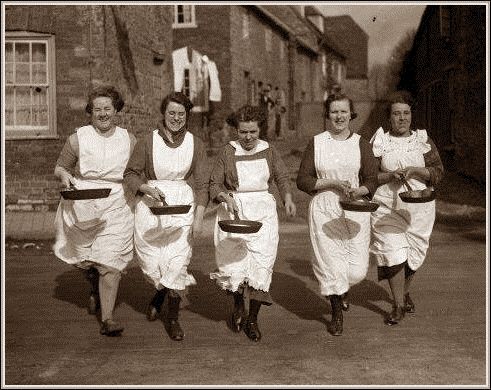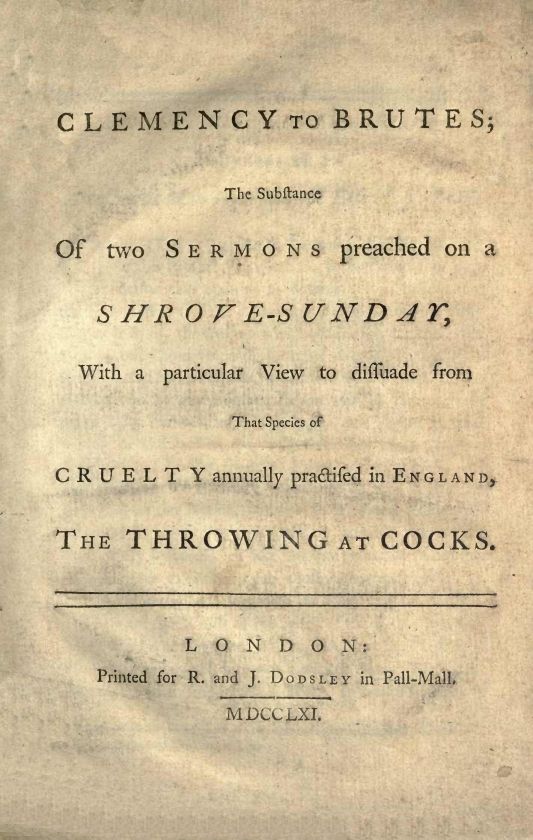Shrove Tuesday takes its name from the practice of
being ‘shriven’ prior to the period of Lent, meaning that people
confessed their sins (and so were shrove or shriven) before the
Lenten fast. The day is more commonly known in our more secular times as Pancake
Tuesday, or simply Pancake Day, following the old custom of using up richer
ingredients such as eggs, fats and sugar before the forty days of fasting
during Lent. In France, it is known as Mardi gras, meaning Fat Tuesday,
which also reflects this practice.
What is not so well remembered is that the
day prior to Shrove Tuesday was called Collop Monday, collop being an old word
meaning a piece of meat, more usually slices of bacon, which were eaten with
fried eggs, again to use them up before Lent. The day after Shrove Tuesday is,
of course, Ash Wednesday which is the first day of Lent, when people go to
church and have a reminder of the origins (ashes to ashes, dust to dust)
placed on their foreheads with ashes made from the burnt palms from the
previous year’s Palm Sunday.
 |
| Pancakes |
In Britain, the pancakes are made from flour, eggs
and milk, whisked into a batter and fried in a frying pan (using lard, if you
want to be authentic), to make thin, flat pancakes which are sprinkled with
sugar and have fresh lemon juice squeezed over them (although some heathens
will put golden syrup or even jam on their pancakes). Central to the pancake
ceremony is ‘tossing the pancake’ whereby the cook flips the pancake
over in the pan using nothing more than a flick of the wrist.
 |
| Tossing the Pancake |
It is a comedy
staple, with every family having its own story of some unfortunate relative
(often a grandmother or an uncle) attempting to toss a pancake only to have it
stick to the ceiling, or land on their head, or fall onto the cat or some such
other hilarious outcome.
Shakespeare, in All’s Well that Ends Well gives
the Clown the line,
“As fit as Tib's rush for Tim's forefinger; as a pan-cake for Shrove Tuesday, a morris for May-day”.
 |
| John Taylor - Jack A Lent |
John Taylor, the Water
Poet, writes about the making of pancakes in his Jack A Lent, using a
mock-heroic style,
“…there is a thing called wheaten flour, which the sulphery necromatic cooks do mingle with water, eggs, spice, and other tragical magical enchantments, and then they put it by little and little into a frying-pan of boiling suet, where it makes a confused dismal hissing like the Lernean snakes in the reeds of Acheron, Styx or Phlegethon, until at last by the skill of the cook, it is transformed into the form of a flap-jack, which in our translation is called a pancake.”
In addition, there were all manner of
associated sports that were played, not least the Pancake Race, where
competitors (often housewives) would run a certain distance whilst tossing a
pancake in a frying pan and, hopefully, not dropping it.
 |
| Pancake Race |
Other sports were
tug-of-war and football matches; in Lancashire, at Stonyhurst College, the
Catholic public school, there used to be the Grand Matches, played on Shrove
Tuesday (and the Thursday and Monday preceding it), between teams called
‘England’ and ‘France’ and including up to sixty or seventy players.
Participants who especially distinguished themselves were given extra pancakes
and lemonade at the half-time interval. A rather more shameful ‘sport’ that was
practiced at many public and grammar schools, as well as throughout England in
general, was Throwing at the Cock, when boys threw sticks at a live cockerel.
Sir Thomas More wrote, with pride, at his boyhood skill of at ‘casting a
cok-stele’ (the word stele is still used in Lancashire to describe
the wooden handle of a long household brush).
 |
| Clemency to Brutes - 1762 |
In some places, the use of bows
and arrows was allowed instead, as in this example by James Clegg, writing in
his diary about Shrove Tuesday at Rochdale Grammar School in 1686,
“…ye young men of ye upper end of the school were shooting with bows and arrows at a cock, and the rest of us made a lane for the arrows to pass-through.”
This
cruelty is first mentioned in How the Good Wive taught hir Doughter
(1430), in the lines,
“Go not to wrastelinge, ne to schotinge at cok,As it were a strumpet or a gigglelot,”
and was not abolished at Manchester
Grammar School until 1867.
I mentioned Jack A Lent earlier, and this refers to
an effigy made from straw and old clothes that was traditionally stoned and
abused on Ash Wednesday and then burned on Palm Sunday. He was said to
represent Judas Iscariot, and the rough treatment of Jack A Lent (or Jack o’
Lent) was thought to be revenge for the betrayal of Jesus Christ.
I’ll return
to Judas tomorrow.
No comments:
Post a Comment